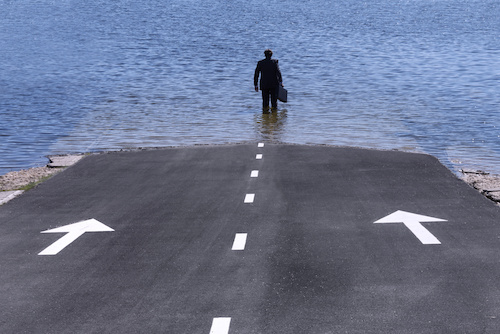 Culture & Ethics
Culture & Ethics
 Medicine
Medicine
Suicide Promotion Is Now at Flood Levels in the Media

The mainstream media have largely become suicide pushers. Yesterday, the New York Times Magazine had a front-page story touting the suicide of a woman with Alzheimer’s. From “The Last Day”:
Over the next several weeks, Sandy told those closest to her about her diagnosis and her plan to end her life before she became incapable of doing so. She told her two adult children, Emily and Jeremy, both in their 30s, and a handful of others: Karen; Daryl’s sister, Robyn Bem; and Sandy’s sister, Bev Lipsitz, who lived in Oregon.
No one in that inner circle tried to talk her out of suicide; they knew how fierce she could be once her mind was made up. All they asked was that she promise not to choose a method that would be particularly disturbing — using a gun or jumping off a bridge into one of Ithaca’s famously beautiful gorges.
Sandy had contemplated both of those options, but she didn’t want that sort of death either. “What I want,” she typed in her journal in an emphatic boldface font, “is to die on my own timetable and in my own nonviolent way.”
Of course no one tried suicide prevention: Family-supported suicide is now considered an act of love. And note, the story contains the usual bromides about dying on her own terms, etc. It is the mantra.
The advocacy here is to allow euthanasia for people with Alzheimer’s so they can “live longer” and be killed once they lose all capacities — as happens in the Netherlands. Indeed, the story specifically references that option, while seeming to lament that it is “rare” there (2 percent of euthanasia killings).
Suicide promotion is now at flood levels in the media — look at how Brittany Maynard was extolled. These stories are culturally subversive and morally insidious. They undermine living with these conditions by pushing dying on “your own terms.”
The World Health Organization urges media not to publish stories like this because they promote suicide and leads to copy-cat deaths.
Ah, so what, Wesley? These aren’t troubled teenagers with the world in front of them, but people with lives not worth living. Let ’em go! In fact, we should let doctors help. And we wonder why there is a geriatric suicide crisis. Except, maybe it isn’t really deemed a crisis anymore.
These days the highest levels of media and popular culture ooze with support for self-killing. It is a sign of cultural collapse.
Image: fresnel6 / Dollar Photo Club.
